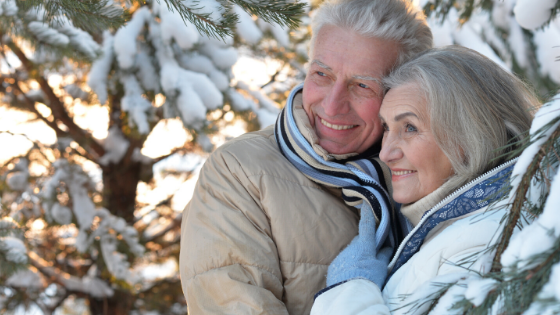
4 Winter Safety Tips for Seniors
Winter comes whether we like it or not. Long gone are the days of getting canceled from school due to the wintery weather. Now that you are an older adult you dread the bitter cold temperatures and wintery roads way more than you used to in your younger days. The winter can be rough on your mind and body, but that is why we want to help.
4 Winter Safety Tips for Seniors:
- Watch the ice
- Dress warm
- Seasonal depression
- Pay attention to your diet
Watch the ice
Unfortunately, with winter comes ice. You can’t escape the slippery sidewalks or roads, but you can do your best to avoid them. Your chances of falling on ice and getting seriously injured increase as you age, that’s why it’s important to take precautions or just stay inside.
Dress warm
When the temperatures drop below freezing, your chances of frostbite increase. There are a lot of reports that state over half of the deaths related to hypothermia were those 65 and older. Make sure that you are keeping your house warm and dressing in multiple layers when leaving the house. It would also be a good idea to have a designated helper assist you out of the house. This way if you were to slip and fall or get stranded somewhere you have someone with you.
Seasonal depression
While seniors tend to say inside during the winter months, it is also important to keep in mind that seasonal depression is on the rise. Seniors tend to be more isolated and lonely, but the winter months really keep them shut-in. They tend to stay home from church, community activities, and family time due to the weather. If you have a neighbor who is a senior or a family member, be sure to stop by and see them, call them on the phone, or send a card in the mail. Doing these things will help remind them that people do care.
Pay attention to your diet
Don’t forget, that during the winter months the amount of Vitamin D you get decreases. Be sure that you are eating a varied diet. If you have questions about your diet, be sure to talk with your family doctor or nutritionist for more information.
Always remember that if you don’t feel qualified or able to take care of your loved one, we can help. To learn more about our assisted living, long-term living, or rehabilitation services, be sure to give us a call at (937) 319-8924.









